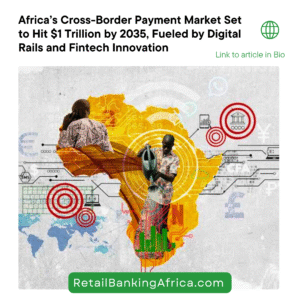In Africa, where millions remain outside the formal banking system, retail banks are pioneering initiatives to bridge the gap and extend financial services to the unbanked and underbanked populations. Recognizing the untapped potential of this vast demographic, banks are reimagining their value propositions, tailoring products and services to meet the unique needs of marginalized communities while simultaneously fostering financial health and empowerment.
At the heart of this transformation lies a commitment to financial inclusion, a cornerstone of sustainable development and economic growth. By leveraging innovative approaches and digital technologies, retail banks are dismantling barriers to access, empowering individuals and communities to participate in the formal economy, and unlocking new opportunities for prosperity.
One of the primary strategies adopted by retail banks is the expansion of branch networks and alternative delivery channels, particularly in underserved rural and peri-urban areas. Through the establishment of brick-and-mortar branches, mobile banking vans, and agent banking networks, banks are bringing financial services closer to the people, reducing geographic barriers, and enhancing accessibility for those residing in remote regions.
Moreover, digitalization has emerged as a powerful enabler of financial inclusion, offering scalable and cost-effective solutions to reach the masses. Mobile money platforms, in particular, have revolutionized banking in Africa, providing a convenient and secure means for individuals to transact, save, and access credit without the need for traditional bank accounts. By leveraging partnerships with mobile network operators and fintech startups, retail banks are harnessing the ubiquity of mobile technology to extend their reach and cater to the diverse needs of a rapidly evolving customer base.
In addition to expanding access, retail banks are designing products and services specifically tailored to the financial realities and aspirations of the unbanked and underbanked populations. Microfinance loans, for instance, cater to the entrepreneurial spirit prevalent in many African communities, providing small-scale entrepreneurs with the capital they need to start or expand their businesses. Similarly, savings and insurance products are designed to address the unique risk management needs of low-income households, promoting resilience and long-term financial stability.
Beyond access and products, retail banks are increasingly prioritizing financial education and literacy initiatives to empower individuals with the knowledge and skills needed to make informed financial decisions. Through workshops, digital learning platforms, and community outreach programs, banks are equipping consumers with the tools they need to manage their finances responsibly, build savings, and plan for the future. By fostering a culture of financial empowerment, banks are not only improving consumer financial health but also laying the foundation for sustainable economic development.
Despite the progress made, challenges persist on the path to universal financial inclusion. Regulatory barriers, limited infrastructure, and entrenched socio-economic inequalities continue to hinder efforts to reach the last mile. However, with unwavering commitment and collaboration across the public and private sectors, the vision of a financially inclusive Africa is within reach.












